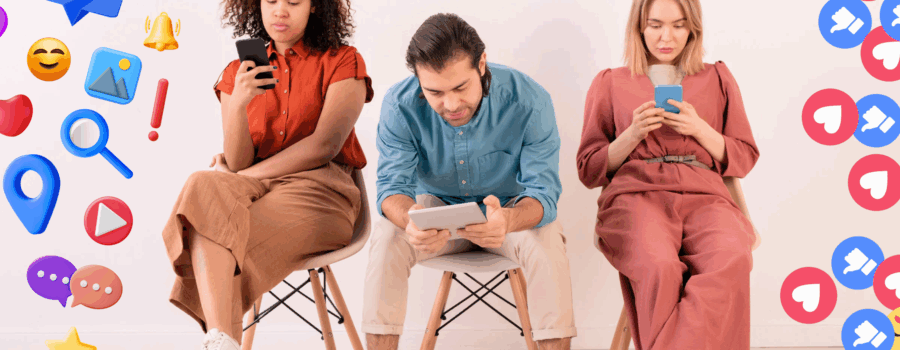In today’s hyperconnected world, the hidden weight of the scroll is something many of us carry without even realizing it. With endless content at our fingertips, social media has become more than just a tool for staying in touch.
Social Media & Mental Health: A Growing Concern
The connection between social media and mental health is no longer just theory it’s backed by growing research. Studies show that heavy social media use is associated with increased rates of anxiety, depression, sleep disturbances, and low self-esteem. The instant feedback loop of likes and shares triggers dopamine release in the brain, creating a cycle that can become mentally and emotionally exhausting.
🔗 This Harvard Health article explores how these platforms affect our emotional regulation and brain function.
The Impact on Teens and Young Adults
Young people are especially susceptible to the hidden weight of the scroll. Between the pressure to fit in, fear of missing out (FOMO), and the influence of unrealistic beauty standards, teens often feel overwhelmed by what they see online. Research shows that teen depression rates have spiked over 60% in the last decade closely linked with the rise of social media usage. Body image issues and cyberbullying further contribute to emotional distress and social withdrawal.
Sleep, Stress & the Dopamine Trap
One of the most overlooked impacts of social media on mental health is sleep disruption. Many people, especially teens, check their phones right before bed reducing sleep quality and increasing symptoms of insomnia. On top of that, the constant stimulation hijacks our brain’s reward system, keeping us in a cycle of emotional highs and lows based on online engagement. Over time, this can lead to emotional burnout, irritability, and even mood disorders.
> 📖 Looking for more ways to protect your emotional health? Don’t miss our blog on impact of social media on mental health — a practical guide to regaining balance.
Interesting Facts You Didn’t Know
People who use social media more than 3 hours a day are more likely to report poor mental health.
Instagram is ranked the most harmful app for teen mental well-being, particularly due to body comparison.
Dopamine released from likes and notifications can mimic the brain’s reaction to addictive substances.
Excessive scrolling is directly linked to sleep problems and emotional fatigue.
These insights make it clear that social media and mental health are deeply interconnected.
What Can We Do About It?
Awareness is the first step to healing. Setting healthy screen-time boundaries, curating your feed, and talking openly about how social media makes you feel can make a world of difference. For young people, parental guidance and digital literacy are essential tools for creating a safer online environment.
The hidden weight of the scroll doesn’t have to define your relationship with the digital world. If scrolling is starting to feel heavier than helpful, it might be time to check in with your mind and take a much-needed break.




